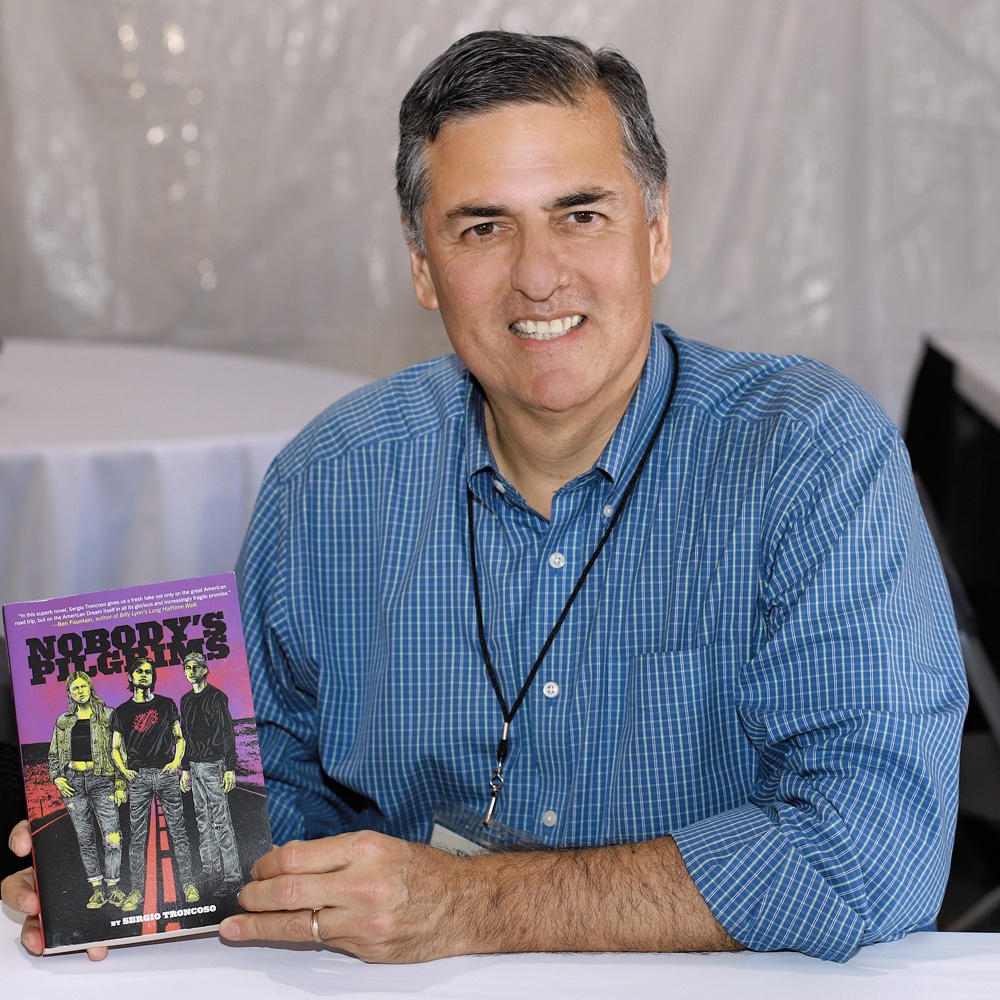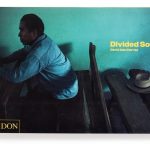By
Nicole DeRouen
Sergio Troncoso has become a household name in the field of literature. His many books and stories focus on the border region and its inhabitants. Born on the east side of El Paso by Ysleta, Troncoso attended Ysleta High School and often visited his grandmother on Myrtle Street.
He knows what it means to grow up on the border, and how Mexican and American cultures blend beautifully to create a unique El Paso identity.
Troncoso is an influential voice in contemporary literature, who draws from his personal experiences growing up on the U.S.-Mexico border to explore the blending of cultures and the struggles of marginalized communities. His fearless approach to taboo topics and commitment to inclusivity, both in his writing and through his leadership in literary spaces, highlights his dedication to giving a voice to the underrepresented. As a trailblazer for Mexican-American writers, Troncoso’s recent induction into the Texas Literary Hall of Fame cements his legacy of advocating for diversity and elevating the rich talent of border communities like his own in El Paso.
“The Texas Literary Hall of Fame showcases top literary writers across the nation. This group of inductees follows a long list of others who demonstrate how Texas has shaped the cultural landscape of their writings,” said Sonja Watson, Ph.D., Dean of the AddRan College of Liberal Arts.
Troncoso’s works include novels like The Last Tortilla and Other Stories, From This Wicked Patch of Dust, and Nobody’s Pilgrims, as well as essays such as those in Crossing Borders: Personal Essays.
Through these, he brings attention to the struggles of the poor and the underrepresented, particularly Mexican Americans, while advocating for their inclusion in broader literary and cultural conversations. His work is celebrated for its bold, insightful commentary on social justice and its nuanced depiction of border life.
He’s always had a passion for writing, and – it turns out – it runs in his family.
His paternal grandfather, Santiago Troncoso (who he refers to as a “rabble-rousing Mexican journalist”), was the editor of El Dia newspaper in Juarez, and he was known for getting in a bit of trouble while fighting for journalistic freedom. His grandson followed his example and has been working in writing in some form since he was 18, starting as the yearbook editor at Ysleta High.
He’s especially fond of writing about unconventional topics and characters.
“You know, if you write about taboo subjects, if you write about the real thing, you get people angry, but that’s actually real writing,” he explained. Troncoso is not afraid to acknowledge hard truths or difficult topics, which is one of the reasons his writing is so effective. Troncoso also believes in making a difference through inclusion, and he knows that representation is important.
Among his many accomplishments is his status as the first person of color to be a fellow of the Texas Institute of Letters.
When he served as president of the organization, he used his platform to advocate for inclusivity in literary spaces. His passion lies in giving voice to marginalized people. As someone who grew up poor and on the border, he understands the importance of including disadvantaged groups in the literature world.
“What mattered to me was starting to induct and give prizes to communities that had been overlooked, particularly Mexican Americans, African Americans, LGBTQ communities,” he explained.
His story is about to become even more inspiring with his induction into the Texas Literary Hall of Fame, which recognizes a select few Texas authors who have contributed significantly to literature, which Troncoso has been doing for his whole career. Troncoso shares that he was surprised when he first learned of his induction, and he is very excited to continue sharing his work with as many people as possible.
“I’m very proud of being a member of the Texas Literary Hall of Fame. I think it helps open people’s minds about the kind of talent you have on the border, especially in a place like El Paso, absolutely, especially among poor kids. I mean, I was a very poor kid. There is a lot of talent on the border in the very poor communities and it just needs a chance. The kids need a chance, just like I got a chance. If my life is about anything, it’s about paying attention to places and people from Ysleta.”
















